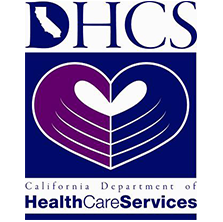Drug addiction is a complex and progressive condition that gradually consumes the life of the addict and their loved ones. Addiction is complex in the fact that no two addicts are the same in regard to why they became dependent on the substance. Each addict is different in the signs and symptoms of addiction they display, and the degrees of severity that are seen in their symptoms. Additionally, each addict has a unique set of factors that led to their substance abuse.
The signs of addiction can be equally complex and challenging to see in people struggling with dependence on substances. Addicts are discreet and secretive about their drug use, and they become experts at hiding their use from others. However, there are common signs of addiction that most substances abusers exhibit over time. Once those addiction symptoms are pinpointed, those who abuse drugs and alcohol have the opportunity to get the help they need to get and stay sober.
What Causes Addition?
There is no clear-cut reason why people become addicted to drugs because of the wide range of risk factors. However, increasing research points to three major factors that can make people more vulnerable to addiction:
Genetics
One factor that may make some people vulnerable to addiction is genetics. Some studies indicate that 40 to 60 percent of predisposition to addiction is due to genetics. Additionally, it is estimated that children of addicts are 25 percent more likely to develop a substance abuse issue later in life when compared to children of non-addicted parents. However, researchers have not yet been able to isolate a specific “addiction” gene. Instead, the tendency of some families to develop addiction issues is due to exposure to substances and the normalization of substance use within families.
Environment
A huge factor in the development of addiction is the home environment. If people grow up in a household where drug use is common, it is seen as being normal. As a result, people in that household become desensitized to substance use. Also, people in a household can turn to drugs and alcohol as a coping mechanism because they witness the negative consequence of drug use experienced by family members.
Brain Chemistry
The brain and body also play a role in the development of addiction. When people use drugs and alcohol, the brain is flooded with the neurotransmitter dopamine. Dopamine is the brain’s natural “feel good” chemical. As people continue to use substances, the brain becomes overwhelmed by the spikes in dopamine. As a result, the brain will produce less and less of this neurotransmitter. If people try and quit using substances altogether, they will experience withdrawal symptoms that can be uncomfortable and painful to endure.
What are the Signs of Addiction?
The signs of addiction can be seen in three distinct areas: physical, behavioral, and emotional. The most common early signs of addiction in each area includes the following:
Physical Signs of Addiction
The physical signs of addiction are wide-ranging. Early signs of addiction include dilated or red pupils, weight loss, and a decline of personal hygiene. Physical signs of addiction also include repetitive speech patterns and significant changes in eating habits. Additionally, drug abuse may make users overly hyperactive or extremely underactive dependent on the substance.
Behavioral Signs of Addiction
Common behavioral signs of substance abuse include isolation from family, friends, and loved ones. Also, addicts can become secretive about their drug use and go to great lengths in over to cover their addiction. Behavioral signs also can include missing school, work, or other critical engagements.
Emotional Signs of Addiction
Those who struggle with addiction display significant irritability, anger, and defensiveness. Addicts also have little or no interest in the activities they once loved. Other signs of addiction include the following:
Rationalizing—occurs when addicts over excuses and justifications to their inappropriate behavior while under the influence.
Blaming—instead of holding themselves accountable, addicts blame their problems on others to deflect attention to themselves.
Minimizing—addicts may admit to their problems on a surface level, but they fail to address the root causes of their addiction.
Diversion—when pressed on their addiction and addictive behavior, addicts will change the subject and avoid discussing the topic.
How to Find Addiction Treatment Near Me
If you notice the signs of addiction in yourself or a loved one, you must find professional help as soon as possible. With all the options in drug treatment, you may feel unsure at which treatment program will best fit your needs. Safe Harbor House is a drug treatment center that offers effective inpatient rehab programs that are evidence-based and proven to work.
Family-owned and operated, Safe Harbor House employs an experienced and highly trained staff who will work with you in creating an individualized treatment plan perfectly tailored to meet your unique needs. No matter the severity of your drug addiction, Safe Harbor House will give you the tools you need to find lasting sobriety. Call us toll-free right now and find peace, health, and happiness.




